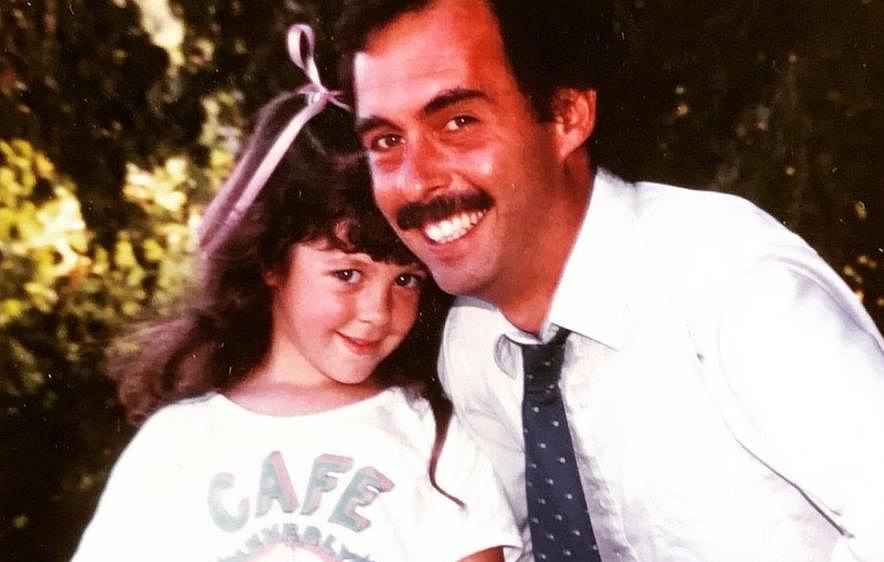






See listing of Recent and Most Popular articles on the Home Page
Health & Wellness
Category: Communication / Topics: Communication • Coping • Disease • Relationships
What Do I Say?
Submitted by Stu Johnson
Posted: June 29, 2016
How to talk to someone who has Alzheimer's…
Dealing with someone with Alzheimer's is something that more of us will encounter...perhaps you have already had that experience, or are going through it now. In the health section of my local paper this week, there was an article by Susan Berger of the Washington Post (where it appeared on May 30). Here is an excerpt from the article and a list of "tips for interacting with Alzheimer's patients." A link to the full article appears at the bottom of the page.
During a routine trip to my local grocery, I ran into an acquaintance I had not seen in more than a year. She looked great and was her typically upbeat, energetic self. We exchanged hellos. I was not prepared for what came next.
“I was recently diagnosed with early-stage Alzheimer’s,” she said.
This warm, accomplished, Berkeley-educated woman, a mother and grandmother who was my go-to person for local political goings-on, great books and recipes, then said, without skipping a beat, “I am doing okay right now, and I have signed up for a clinical trial.”
Tips for interacting with Alzheimer's patients
• Don't debate facts. There is no point debating a faulty fact or memory. The person with dementia truly believes the statement, so arguing will probably cause only conflict and stress.
• Embrace their reality. The disease is going to give the patient a view of the past -- and even the present -- that is different from yours. So if someone with dementia says, "When can we go see my mom?" and you know that the mother is dead, you would not say, "Your mother is dead." You could instead say, "Let's go tomorrow" and move on to another subject. The goal here is not truth but finding a way to avoid upsetting the person.
• Ask them to help. Don't give a lot of instructions, but do ask the patient to help. Everyone wants to be helpful. The word "help" is key. Can you help me set the table? Or fold the laundry? Everyone wants to feel productive.
• Reintroduce yourself every time you enter the room. You do not want to assume that the patient knows you, especially if you're not a family member or close friend. But even relatives should expect this to be necessary as the disease progresses. You don't want to scare someone with dementia by suddenly appearing at the person's side. You'll want to approach from the front so that the patient can see, hear and understand you best.
• Do not quiz. Asking such things as "Do you remember what you had for breakfast?" and "Don't you remember my name?" can be very upsetting for someone who cannot remember. Instead, offer gentle reminders: "The eggs you had for breakfast seemed good." "Look who's here: It's your grandson James."
• Simple and calm. Choose simple words, and use a calm voice.
• Maintain your composure. Don't act upset in front of the person if he or she doesn't recognize you or says something that doesn't make sense, and don't talk as if the patient isn't there.
• Minimize distractions. Turn off the television or radio if that won't upset them to help them focus on interacting.
• Make eye contact. When speaking make eye contact and call the person by name. Make sure you have his or her attention before you start to talk. Allow time for a response -- sometimes it can take a while -- and try not to interrupt when the person is speaking.
This chart appeared in the version of the story that appeared in the Daily Herald, June 27, 2016.
I hugged her and told her how sorry I was. Told her there are no words. In a daze, I finished my shopping. Driving home, I burst into tears.
It was many months later that our paths crossed again. I saw her across the room at our local synagogue. She was not close enough to say hello. In a way, I was relieved. Would she recognize me? And if not, what do I say?
According to the Alzheimer’s Association, as many as 5.4 million Americans have the disease. For friends and relatives, there is the inevitable question of how to act.
“We know when we are friends with someone with Alzheimer’s and interacting in a variety of settings, we may do our best to do the right thing and say the right thing,” said Ruth Drew, director of family and information services at the Alzheimer’s Association. “But it may not always be the right thing.”
Drew said that Alzheimer’s disease progresses more rapidly in some people than in others. Many who are newly diagnosed stay in the early stage, retaining their personality and people skills, for quite a while, but for others, serious changes happen more quickly.
Christopher Marano, a geriatric psychiatrist at Johns Hopkins Medicine, said that the interval between the initial diagnosis and a significant downturn can range from five to 20 years but that “people who are diagnosed at a younger age tend to progress faster.”
That woman I met at the grocery is now 73 years old and was happy to talk about how she wants the world to deal with her now.
‘I felt scared’
“When I first heard it was Alzheimer’s [about three years ago], it was like ice water on my face,” she said. “I think I felt kind of scared — just not sure what is next.”
[Keeping mentally active doesn’t stave off Alzheimer’s disease — only its symptoms]
She said she has a core group of girlfriends who treat her as before — including her in their plans for lunches, dinners and outings to art galleries and museums. “One comes and does crosswords with me, another comes and takes me to lunch. They know I have Alzheimer’s, and they don’t care.”
My friend has been open with friends and family since the day she was diagnosed, though she and her husband, who live in the suburbs of Chicago, did not want to be identified to a wider audience. Her husband thinks the openness with those she knows works for her. “If it was secret, that would be a burden for her,” he said.
And while she said she is for the most part still okay, her husband reminds her that there are times she turns to him and asks, “Am I losing it?” or “Am I out of it?” And she did say there are things she is sad about. “It bothers me. I love to bake. I can’t bake anymore. And I can’t cook alone anymore. [Her husband helps her.] I feel really bad about that.”
When she is down and asking “what is going to happen to me next,” she continued, her husband always says: “We don’t know what is next. And we are all going to die someday. Let’s just make this a good day.”
[Two minutes playing this video game could help scientists fight Alzheimer’s]
The support her husband provides is clearly key. When I comment on how great she looks — so put-together — she laughs. Not long ago, her husband went with her to Neiman Marcus to see her favorite makeup artist. He told the artist that his wife has Alzheimer’s and asked that she make over his wife while he paid close attention. “I watched. I took notes and typed them up,” he said. “And now I do her makeup. It’s good I have time.” (He is a recently retired lawyer.)
Read the rest of the article at washingtonpost.com
Posted: June 29, 2016 Accessed 1,140 times
![]() Go to the list of most recent Health & Wellness Articles
Go to the list of most recent Health & Wellness Articles
![]() Search Health & Wellness (You can expand the search to the entire site)
Search Health & Wellness (You can expand the search to the entire site)
![]() Go to the list of Most Recent and Most Popular Articles across the site (Home Page)
Go to the list of Most Recent and Most Popular Articles across the site (Home Page)
 Loading requested view...
Loading requested view...